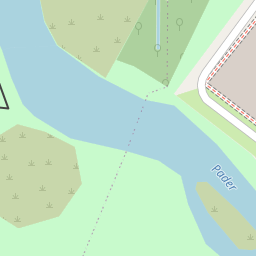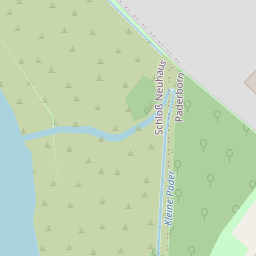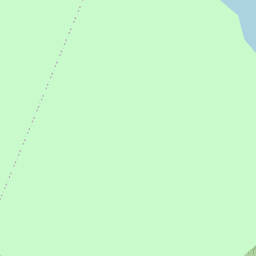
- E-Mail:
- jboss@mail.uni-paderborn.de
- ORCID:
- 0000-0002-4121-4668
- Web:
- Homepage (Extern)
- Social Media:
- Office Address:
-
Fürstenallee 11
33102 Paderborn - Room:
- FU.307
About Jakob Bossek
Jakob earned his bachelor's degree in Statistics and a diploma in Computer Science from TU Dortmund University in 2013 and 2014, respectively. In 2018, he successfully completed his doctoral studies in Information Systems at the University of Münster, Germany. Following this, he held PostDoc positions at both the University of Münster, Germany, and the University of Adelaide, Australia.
From April 2022 to November 2023, Jakob served as an Akademischer Rat (assistant professor) at the Chair for AI Methodology at RWTH Aachen. Presently, he holds the position of Akademischer Rat at the Chair for Machine Learning and Optimisation (MALEO) in the computer science department of Paderborn University.
Curriculum Vitae
04/2022 - 11/2023: Academic Councillor at the Department of Computer Science (Chair for AI Methodology), RWTH Aachen University, Germany
04/2021 - 03/2022: Academic Councillor at the Department of Information Systems (Chair for Statistics and Optimisation), University of Münster, Germany
09/2020 - 03/2021: PostDoc at the Department of Information Systems (Chair for Statistics and Optimization), University of Münster, Germany
10/2019 - 09/2020: PostDoc Researcher at the School of Computer Science, The University of Adelaide, Australia in the Optimisation and Logistics group of Prof. Dr. Frank Neumann
02/2015 - 09/2019: Research Associate (PhD student until Nov. 2018; later PostDoc) at the Department of Information Systems (Chair for Statistics and Optimization), University of Münster, Germany
11/2018: Doctoral degree in Information Systems (Dr. rer. pol.) at the University of Münster, Germany
09/2005 - 11/2014: Studying Computer Science with minor Statistics at the TU-Dortmund University (degree: Diplom; M.Sc. equivalent)
09/2008 - 05/2013: Studying Statistics with minor Computer Science at the TU-Dortmund University (degree: B.Sc.)
If you want truly to understand something, try to change it. - Kurt Levin
Research
Research Interests
His research interests span a wide spectrum, encompassing AutoAI methods, with a specific focus on algorithm selection and algorithm configuration. However, his primary research concentration lies in both empirical and theoretical aspects of bio-inspired problem-solving, particularly in the realm of evolutionary algorithms for NP-hard combinatorial optimization problems. Currently, his research endeavors aim to deepen the understanding of evolutionary algorithms through time complexity analysis in particular in the field of Quality Diversity (QD) and Evolutionary Diversity Optimisation (EDO) for combinatorial optimisation problems.
- Multi-objective optimisation
- Combinatorial optimisation
- Heuristic optimisation
- Evolutionary computation methods
- Theory of randomised search heuristics
- AutoAI methods (in particular algorithm selection and algorithm configuration)
- Machine learning
- Data analysis
Publications
Latest Publications
MO-SMAC: Multi-objective Sequential Model-based Algorithm Configuration
J.G. Rook, C. Benjamins, J. Bossek, H. Trautmann, H.H. Hoos, M. Lindauer, Evolutionary Computation (2025) 1–25.
Automated Algorithm Configuration and Systematic Benchmarking for Heterogeneous MNK-Landscapes
O.L. Preuß, C. Mensendiek, J. Rook, J. Bossek, H. Trautmann, in: B. Filipic (Ed.), Proceedings of the Genetic and Evolutionary Computation Conference, GECCO 2025, NH Malaga Hotel, Malaga, Spain, July 14-18, 2025, ACM, 2025, pp. 58–66.
Using Reinforcement Learning for Per-Instance Algorithm Configuration on the TSP
M. Seiler, J. Rook, J. Heins, O.L. Preuß, J. Bossek, H. Trautmann, in: 2023 IEEE Symposium Series on Computational Intelligence (SSCI), IEEE, 2024.
On the Impact of Basic Mutation Operators and Populations within Evolutionary Algorithms for the Dynamic Weighted Traveling Salesperson Problem
J. Bossek, A. Neumann, F. Neumann, in: Proceedings of the Genetic and Evolutionary Computation Conference, Association for Computing Machinery, New York, NY, USA, 2023, pp. 248–256.
Runtime Analysis of Quality Diversity Algorithms
J. Bossek, D. Sudholt, in: Proceedings of the Genetic and Evolutionary Computation Conference, Association for Computing Machinery, New York, NY, USA, 2023, pp. 1546–1554.
Show all publications
Teaching
Current Courses
- Programmierung 2
- Multi-Objective Optimisation (in English)



















